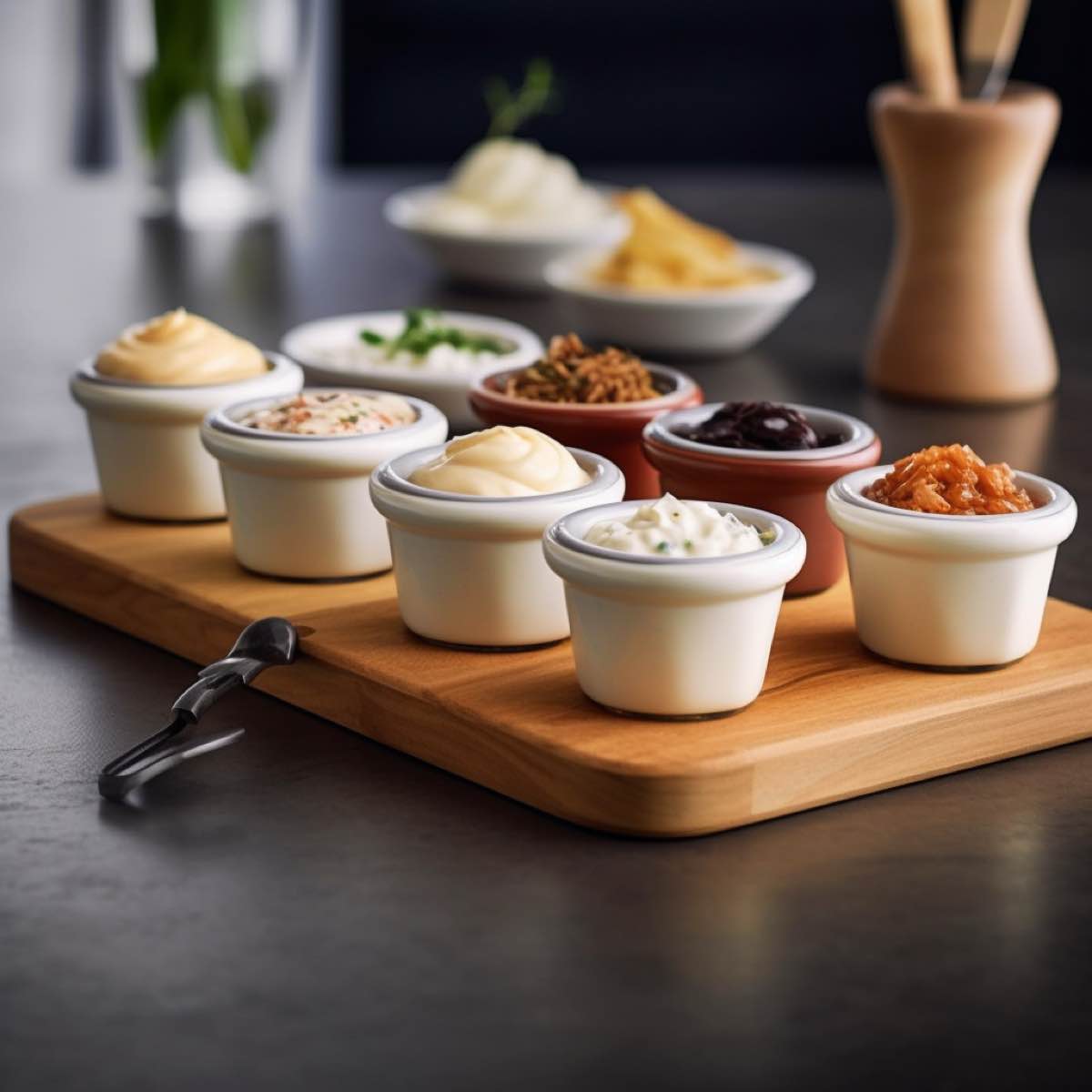DIY Egg Substitutes

DIY Egg Substitutes: How to Make Your Own at Home
Many people avoid using eggs in their recipes due to dietary restrictions, ethical concerns, or personal preferences. Fortunately, there are several egg substitutes available on the market, and many of them are plant-based and rich in protein.
However, some people may wonder if they can make their own egg substitutes at home, either to save money or to avoid the additives and preservatives found in commercial products. Take care of the shelf life for DIY egg alternatives.
Making your egg substitute can be a simple and affordable alternative to store-bought products. Several ingredients can be used as egg substitutes, such as applesauce, mashed bananas, silken tofu, or aquafaba (the liquid from a can of chickpeas), or even egg noodles
They can be used in making meatballs
Each ingredient has a different texture and flavor profile, so it’s important to choose the right substitute for your recipe. Additionally, some substitutes may work better in certain types of recipes, such as cakes, cookies, or breads.
Why Make Your Own Egg Substitutes?
There are several reasons why someone might choose to make their own egg substitutes at home. Here are some of the most common ones:
Vegan or Allergy-Friendly Diet
For those following a vegan or allergy-friendly diet, eggs can be a no-go. Making your own egg substitute allows you to still enjoy your favorite recipes without compromising on dietary restrictions.
Cost-Effective
Egg substitutes can be expensive, especially if you’re using them frequently in your cooking or baking. Making your DIY egg substitute can be a cost-effective alternative.

Customization
Making your egg substitute allows you to customize the recipe to your liking. You can adjust the flavor, color, and texture to match your preferences or the recipe you’re making.
Baking
In baking, eggs play a crucial role in providing structure and moisture. However, several egg substitutes work just as well in baking, such as applesauce, mashed bananas, or yogurt. Making your egg substitute allows you to experiment with different ingredients and find the perfect substitute for your recipe.
Health Benefits
Some egg substitutes, such as flaxseed or chia seeds, are rich in fiber and omega-3 fatty acids. Making your egg substitute using these ingredients can provide added health benefits to your diet.
Water Conservation
Egg production is a water-intensive process, and making your own egg substitute can help conserve water resources. By using alternative ingredients, you can reduce your water footprint and contribute to a more sustainable food system.
Overall, making your own egg substitute can be a fun and rewarding experience that allows you to customize your recipes, save money, and support your dietary needs.
Common Egg Substitutes
When baking and cooking, eggs play a crucial role in providing structure, moisture, and binding. However, not everyone can consume eggs due to allergies, dietary restrictions, or ethical reasons. Fortunately, there are several egg substitutes available that can be used in various recipes. Here are some of the most common egg substitutes:
Vegan Options
For those following a vegan diet, there are several plant-based egg substitutes available, such as:
- Tofu: Silken tofu can be blended until smooth and used as a substitute for eggs in recipes such as frittatas, omelets, and quiches.
- Mashed Banana: Mashed ripe bananas can be used as a substitute for eggs in recipes such as bars, macaroons, and baking.
- Chia Seed: Chia seeds can be mixed with water to form a gel-like substance that can substitute for eggs in recipes such as pancakes and muffins.
- Just Egg: Just Egg is a plant-based egg substitute made from mung bean protein that can be used in various recipes.
Fruit and Vegetable Options
Fruits and vegetables can also be used as egg substitutes in some recipes, such as:
- Unsweetened Applesauce: Unsweetened applesauce can be used as a substitute for eggs in recipes such as cakes and muffins.
- Pumpkin Puree: Pumpkin puree can be used as a substitute for eggs in recipes such as pancakes and waffles.
Aquafaba
Aquafaba is the liquid leftover from cooked chickpeas or other legumes and is an excellent egg substitute for recipes that require meringue or binding. It can be used in recipes such as macarons and meringues.
Seed and Nut Options
Seeds and nuts can also be used as egg substitutes in some recipes, such as:
- Flaxseed Meal: Flaxseed meal can be mixed with water to form a gel-like substance that can substitute for eggs in recipes such as pancakes and muffins.
- Nut Butter: Nut butter can substitute for eggs in cookies and brownies.
Dairy Options
For those who can consume dairy, there are several dairy-based egg substitutes available, such as:
- Yogurt: Plain yogurt can be used as a substitute for eggs in recipes such as cakes and muffins.
- Buttermilk: Buttermilk can be used as a substitute for eggs in recipes such as pancakes and waffles.
Allergy-Friendly Options
For those with allergies, there are several egg substitutes available that are free from common allergens, such as:
- Ener-G: Ener-G is a commercial egg substitute free from common allergens such as eggs, dairy, and soy.
- Potato Starch: Potato starch can be used as a substitute for eggs in recipes such as pancakes and waffles.
- Arrowroot Powder: Arrowroot powder can be used as a substitute for eggs in recipes such as cakes and muffins.
Other Options
Other egg substitutes include:
- Baking Soda and Vinegar: Baking soda mixed with vinegar can be used as a substitute for eggs in recipes such as cakes and muffins.
- Carbonated Water: Carbonated water can substitute for eggs in recipes such as pancakes and waffles.
- Baking Powder: Baking powder can be used as a substitute for eggs in recipes such as cakes and muffins.
In conclusion, there are several egg substitutes available that can be used in various recipes. It is essential to choose an egg substitute that will provide the necessary structure, moisture, and binding required for the recipe.
Conclusion
In conclusion, making homemade egg substitutes is a great option for those who cannot or choose not to consume eggs. With various options available, it is easy to find a substitute that works for your specific needs and tastes.
The most popular substitutes include flaxseed meals, applesauce, mashed bananas, and silken tofu. Each of these options has its unique texture and flavor, so it is important to experiment to find the one that works best for your recipe.
It is also worth noting that while egg substitutes can work well in many recipes, they may only be suitable for some. For example, they may not work well in recipes that rely heavily on eggs, such as meringues or soufflés. In these cases, it may be best to seek out a recipe specifically designed to be egg-free.
Overall, making homemade egg substitutes is a simple and effective way to enjoy your favorite recipes without eggs. With a little experimentation and creativity, you can create delicious and healthy dishes suitable for a wide range of dietary needs and preferences.
